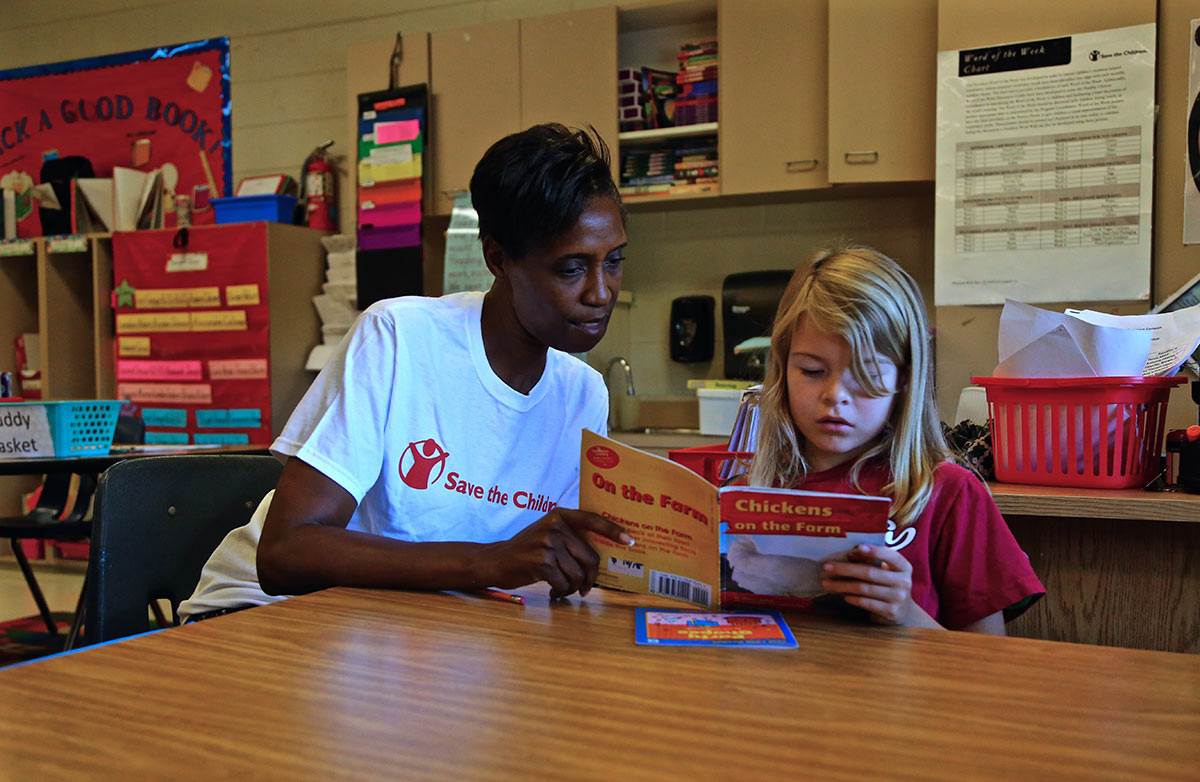
Free Reading Websites For Kids & Parents
September is just around the corner and many students, parents, and teachers still don’t know if they’ll be returning to the classroom. School closures from COVID-19 have completely changed the learning landscape, with parents taking on the greatest burden – not only as caretakers, but as teachers, too. With remote learning becoming the new norm, many parents are worried how this might impact their child’s ability to learn and achieve. This is especially true for children from low-income families.
The Importance of Early Literacy
Even before COVID-19, children from low-income families were already experiencing a number of barriers to academic success. We can see an example of this when we look at summer learning loss. Children from low-income families often don’t have access to the same learning opportunities their higher-income peers have during the summer. As a result, a three-month gap is created, which means students without access to camps, tutors, or other means of academic enrichment over the summer have to play catch-up in the new school year. Unfortunately, these students often fall behind.
This is especially true for early literacy skill development. Literacy is the bedrock of communication, and those skills are used in virtually every other subject a student is learning in school. The statistics are staggering – one study found that students have an 88% possibility of remaining poor readers in fourth grade if their reading skills were poor in first grade. This can make academic achievement for a student exponentially harder, as fourth grade is seen as the first year where students are “reading to learn” as opposed to “learning to read.” Children who reach fourth grade without being able to read proficiently are more likely to struggle academically and eventually drop out of school.
Practicing Early Childhood Literacy at Home
There is some good news: it’s easy to practice literacy skills together at home. In fact, The National Commission on Reading says that the single most significant factor influencing a child’s early educational success is an introduction to books and being read to at home.
We know that parents already have a lot on their plates, so we put together some of our favorite free reading websites for kids, literacy activities, and resources from our partners. These activities are meant to be supplemental, and geared towards younger learners. We also find them easy for parents to engage with, and do not take much time to do. Enjoy!

Five Ways to Practice Literacy, With Free Reading Websites for Kids, Resources, & Activities:
1. Read Together Every Day
Reading comprehension starts at home, and the earlier children read or are read to, the less they are at risk for falling behind or not graduating. Students who are read to at home score 25% higher in reading, and will also go on to score higher in math and other subjects (according to The Department of Education). As you can see, this simple task can make a big difference.
Save the Children recommends reading with your children for 20 minutes each day. Whether you read together, or you set a timer for your child to read on their own, according to the experts, consistency is key.
If you’re looking for new books, Room to Read’s Literacy Cloud is a free online reading library that features hundreds of books, videos, and read alouds. You can search for books by category, level, or language, and you can save and download your favorites to view them offline. Just sign up for a free account and you’re good to go.
If you prefer to have a physical book in your hands (we know the feeling!) Brightly has put together a list of 10 books for 3 - 5-year-olds that you can read over and over again. The list features popular books from parent-approved celebs like Jimmy Kimmel and BJ Novak.
2. Listen to Audiobooks
Learning to listen is a key component of learning to read, and audiobooks often make the story come alive through sound effects, music, and a dramatic narrator. This multi-sensory experience, enhanced when a child follows along with a physical copy of a book, can be very motivating for a young child to learn to read. Audiobooks can also help young listeners pick up new vocabulary words, and provides a model of fluent reading. It’s also a lighter lift for parents, who can turn on an audiobook for their children in the car, while cooking dinner, or practically anywhere else there’s a speaker.
The SAG-AFTRA Foundation’s Storyline Online® program is an ad-free literacy resource featuring the world’s best storytellers reading children’s books aloud. Each narration features creatively produced illustrations and comes with an activity guide if you want to further engage with what you’re reading. Celebrities from Oprah Winfrey to Betty White, Al Gore to Kristen Bell, have lent their voices to bring these stories alive for children everywhere.
While we don’t doubt the theatrical prowess of parents reading aloud to their kids, listening to different narrators can be beneficial too. According to Scholastic, listening to a range of narrators and different styles can help a child deepen their grasp of the reading process. It can also help children understand the rich and various ways in which language distills and conveys meaning. And what better way to experience this than with SAG-AFTRA’s cast of incredible actors and comedians.
So whether you’re going on a road trip, running errands around town, or just hanging out at home, listening to audiobooks can be a valuable tool in learning early literacy.
3. Play Word Games
Who says learning can’t be fun? These games help reinforce literacy skills, all within a guise of a game.
Rhyming Ball
Rhyming can serve as a first step in helping children understand parts of a word – or phonetic awareness. There are lots of simple ways to play with rhyming in your daily life. PBS recommends playing the Rhyming Ball game, which combines a simple back-and-forth ball game with a rhyming activity. To play, sit facing your child with a ball. Roll the ball to your child, and then say two words. If the words rhyme, the child should roll the ball back to you. If they don’t, the parent will say another set of words.
Another way to play the game is to have your child say a word then roll the ball to you, and then you roll the ball back with a word that rhymes with your child’s word. See how long you can keep things moving!
Make a Word Box
Patty McGuire (M.A. Ed.) shared with Harper Collins Children’s Books one of her favorite tips from the classroom. Create a personalized “word box” with your child, and give them a red, yellow, and green marker or crayon and some index cards. When you read together, choose a few words from the book and write them down on each index card. Color code them according to the level of difficulty, and practice the words each day and talk together about what the words mean. As the “red” and “yellow” words become green, celebrate the accomplishment and pick a new round to practice.
Guess My Letter / Guess My Word
PBS offers up this is a simple game that you can play anywhere. Help your child learn the names of the letters of the alphabet and the sounds those letters make by sounding them out. For example, you could say “I’m thinking of a letter that makes the sound mmmmmm. What letter makes that sound?” Or, “I’m going to say a word very slowly, can you guess this word? C-a-a-a-t.” Find as many ways you can play with every letter and sound.
4. Use Literacy Skills in Creative Projects
There are plenty of ways to use literacy skills to be creative. You and your child can work together to write a poem or song, develop a short story, or even create a play that they can perform for the rest of the family. Creating together not only reinforces the skills your child is learning, but it is also a great way to bond.
If you’re looking for a little more guidance, Houghton Mifflin Harcourt’s I Can Read program offers a number of reading “activity sets”. Each “activity set” features a free online book, writing prompts, research activities and more, all meant to be completed in a week. It’s a great, turn-key way to put literacy skills to use in a number of different ways.
5. Read to Give Back

If you’re planning on doing a lot of reading together this summer, why not put that time to good use through Save the Children’s 100 Days of Reading program. Simply read, then log your minutes online. Every minute added will unlock books and educational resources for kids in need. The program is running until World Literacy Day, September 8th. So be sure to get your reading minutes in before then!
Looking for more?
Red Nose Day in School offers free, downloadable lesson plans that help children build empathy while practicing core English Language Acquisition (ELA) and math skills. Better yet, they can all be done from the living room or kitchen table, with your family or with your class.
EXPLORE MORE FROM RED NOSE DAY:
Get on the list. Sign up for updates.
Don’t Miss Out!
Sign up for the latest Red Nose Day news and updates.
rnd-bsd-signup-form


